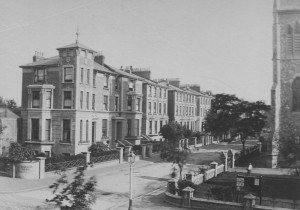Live in or own a house in multiple occupation (HMO)? Big changes to the way licensing works will come into force on 1 October.
Under the new national rules, mandatory licensing – previously limited to properties that were three or more storeys tall – will be extended to cover almost all HMOs that are occupied by five or more people (non-family members) and where there is some sharing of facilities, regardless of the number of storeys. Multi-occupied flats in purpose-built blocks are exempt as long as the block contains three or more self-contained flats.
The new rules will also include the introduction of national minimum bedroom sizes. For the first time, landlords will be legally required to ensure that their tenants have a reasonable amount of space in their rooms. This is aimed at stopping unscrupulous landlords from exploiting London’s housing crisis by carving up houses into ever smaller rooms to maximise rental income.
HMO landlords will also be required by the new licenses to ensure they comply with Ealing Council’s waste disposal scheme and provide proper waste disposal and storage facilities for their tenants, who tend to generate more rubbish and recycling than those living in single family homes.
There are also rules in place for other HMOs that do not fit the mandatory licensing criteria. The council runs two other licensing schemes for rented properties – an additional licensing scheme covers HMOs with a minimum of two storeys occupied by four or more people, while a selective scheme covers all other privately rented properties in Acton Central, East Acton, South Acton, Southall Broadway and Southall Green.
A transitional period will give landlords time to comply with the new standards, including those that will need to change their license from additional or selective to mandatory. Additional licences will remain valid and no action is needed until they come up for renewal, while selective licences will be automatically passported into mandatory HMO licensing without any action needed.
Local authorities in England have substantial new powers to crack down on rogue landlords and agents. Councils can impose civil penalties of up to £30,000 for failing to license or for breaching conditions; and the council, or tenants, can apply for Rent Repayment Orders to reclaim up to 12 months’ rent. If the property is unlicensed, it will also be difficult for the landlord to move their tenants on – they will not be able to use a section 21 notice to seek possession of their property.
Easy to check rogue landlords online
The council has also signed up to the Mayor of London’s Rogue Landlords and Letting Agents Checker, a free online tool which allows Londoners to check if a landlord or letting agent has been convicted of any housing offences. You can access the checker here and find out more about licensing here.
More information
If you woud like to speak to a council officer about licensing, email PRSlicensing@ealing.gov.uk or call 020 8825 9512.







